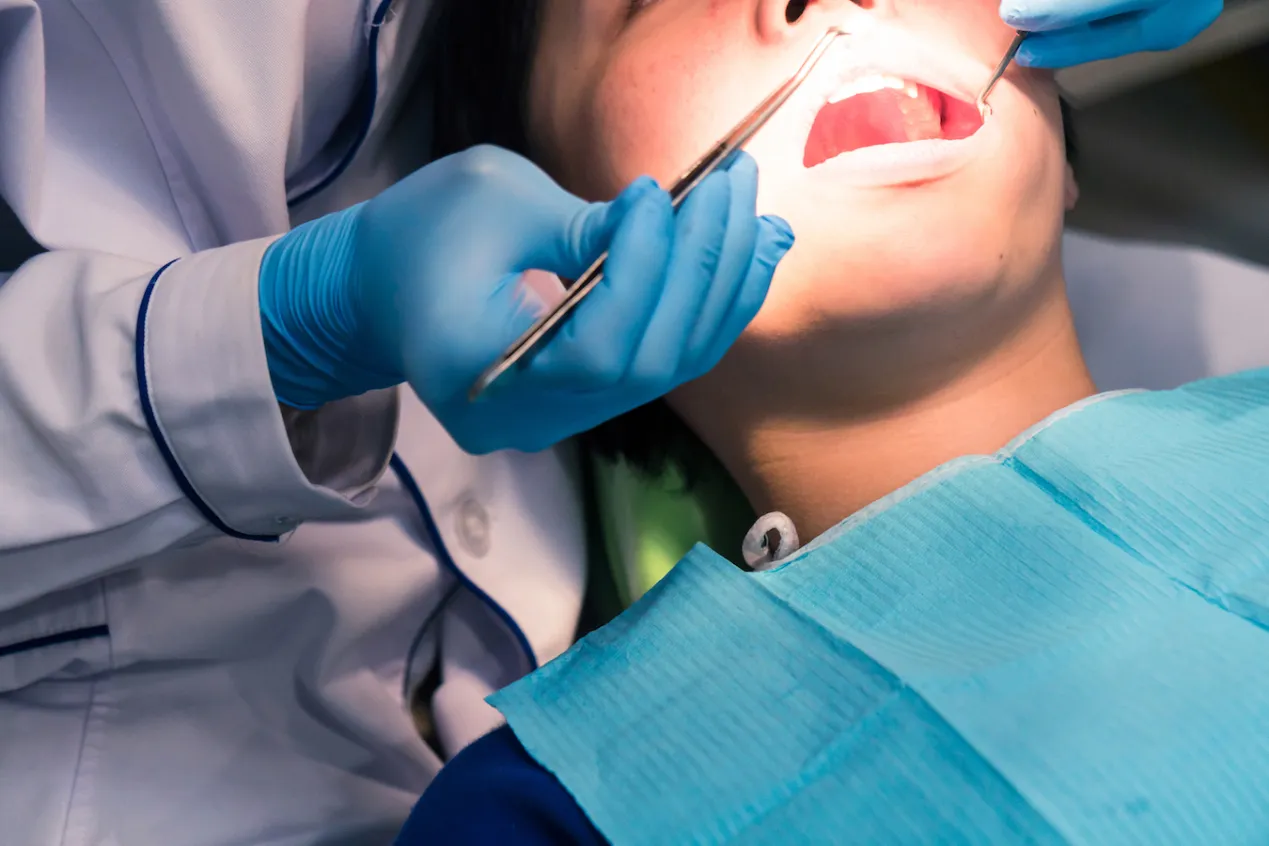Your Guide to Picking the Right Dentist Eugene OR for High Quality Service
Your Guide to Picking the Right Dentist Eugene OR for High Quality Service
Blog Article
An Overview to Typical Dental Conditions That Need a Dentist's Treatment
Toothaches, for example, can be symptomatic of extreme problems such as tooth cavities, broken teeth, or abscesses, each needing details treatments like dental fillings or root canals. Affected knowledge teeth and jaw problems can present significant pain and difficulties.
Toothaches
Toothaches are a common dental problem that can vary from moderate pain to severe discomfort, frequently indicating an underlying concern that requires specialist focus. This pain can originate from a variety of sources, consisting of tooth decays, broken or fractured teeth, and oral abscesses. Each of these problems postures substantial threats if left untreated, potentially resulting in more serious complications.
Tooth decays, also recognized as cavities, are triggered by the accumulation of plaque that wears down tooth enamel, leading to openings or pits in the affected teeth (dentists eugene). Broken or fractured teeth, on the various other hand, may result from trauma, grinding, or attacking right into tough things. These structural problems can expose the delicate internal layers of the tooth, creating pain and enhancing the risk of infection. Abscesses hurt infections at the origin of a tooth or between the gum tissue and a tooth, generally arising from extreme decay or without treatment dental caries.
Efficient treatment of toothaches includes attending to the origin. This may consist of fillings for tooth cavities, crowns for split teeth, or origin canals and anti-biotics for abscesses. Early intervention by a dental professional can avoid further damage and ease discomfort, making sure optimal dental health and wellness.
Gum Tissue Disease
Periodontal condition, a widespread yet often ignored dental condition, materializes through inflammation and infection of the gums and supporting tissues. This condition mainly takes place in two stages: gingivitis and periodontitis. Gingivitis, the milder form, offers with signs and symptoms such as red, inflamed gum tissues that may hemorrhage easily throughout brushing or flossing. If left without treatment, gingivitis can advance to periodontitis, an extra serious type identified by the devastation of the sustaining bone and connective cells, ultimately causing missing teeth.
The primary reason of gum condition is microbial plaque, a sticky, anemic film that continuously creates on teeth. Poor oral hygiene, cigarette smoking, hereditary tendency, and specific clinical conditions, such as diabetes, can aggravate the risk of developing gum disease. Routine oral exams are important for very early discovery and administration of this condition.
Therapy for gum tissue illness varies from specialist oral cleansing and scaling to advanced procedures like root planing and periodontal surgical procedure, depending on the severity. Keeping good dental health practices, including cleaning twice daily, flossing, and making use of an antiseptic mouthwash, can considerably minimize the threat of periodontal illness and advertise healthier gums.
Cavities
Cavities, also called tooth decays, are an usual dental problem characterized by the destruction of tooth enamel as a result of acid-producing microorganisms in the mouth. These bacteria grow on sugars and starches from food and beverages, creating acids that gradually wear down the enamel, resulting in tooth cavity development.
Early-stage tooth cavities might not show signs and symptoms, but as they proceed, they can create toothache, sensitivity to hot or cool, visible holes or pits in the teeth, and discoloration. If left unattended, tooth cavities can pass through much deeper layers of the tooth, possibly causing extreme discomfort, infection, and also tooth loss.
Preventing dental caries involves a combination of great dental health methods and dietary habits. Regular cleaning with fluoride toothpaste, flossing, and routine dental examinations are critical. Dentists may additionally advise added preventative actions, such as fluoride therapies and dental sealants, to safeguard teeth from decay.
Therapy for cavities depends upon their extent. Minor tooth cavities can be addressed with oral fillings, which recover the tooth's framework. If the degeneration has actually reached the tooth's pulp, a lot more sophisticated cases might require crowns or also origin canal treatment. Prompt intervention by a dentist is vital to avoid problems and keep total try here dental health and wellness.

Impacted Knowledge Teeth
Impacted wisdom teeth are a prevalent oral problem that occurs when the 3rd molars, typically referred to as wisdom teeth, fall short to totally arise or straighten correctly within the mouth. This condition typically results from inadequate area in the jaw or an abnormal development angle of the teeth. Influenced wisdom teeth can result in a selection of complications, consisting of discomfort, infection, and damage to adjacent click to read teeth.
When knowledge teeth end up being impacted, they are typically partly emerged or stay completely beneath the gum line. This partial eruption can develop a path for germs to go into the gum tissues, causing infections that show up as swelling, discomfort, and also high temperature. Additionally, affected knowledge teeth can apply stress on surrounding teeth, potentially triggering crowding or changing.
An extensive dental examination, usually including X-rays, is crucial for identifying affected knowledge teeth. Normal dental check-ups are suggested to keep track of the problem and maintain dental health.
Jaw Conditions
Jaw problems, jointly called temporomandibular joint (TMJ) disorders, encompass a variety of conditions that influence the jaw joint and bordering muscle mass. These disorders can show up through signs such as discomfort or inflammation in the jaw, trouble chewing, a clicking or popping audio when closing the mouth or opening, and also persistent headaches. TMJ conditions can occur from different elements, including joint inflammation, jaw injury, or habitual behaviors like teeth grinding or jaw clenching.
Diagnosis of TMJ disorders generally entails a detailed evaluation by a dentist, consisting of a physical examination of the jaw, oral X-rays, and in some cases progressed imaging techniques like MRI or CT scans to examine the joint's problem. Treatment choices differ depending upon the seriousness of the disorder. Non-invasive strategies such as physical treatment, oral splints, and drugs focused on reducing inflammation and pain are commonly first-line therapies. In much more extreme situations, surgical treatments may be necessary to remedy architectural concerns within the joint.
Very early treatment by an oral expert is vital to avoid the progression of TMJ disorders and to keep overall dental wellness. Individuals experiencing consistent jaw discomfort or dysfunction must look for prompt assessment and therapy.
Conclusion
Maintaining dental wellness requires prompt expert care to address typical dental problems. Toothaches often suggest underlying concerns such as tooth cavities, broken teeth, or abscesses, requiring punctual treatment. official site Periodontal condition, from gingivitis to periodontitis, demands regular dental exams and cleanings to stop progression. Impacted knowledge teeth and jaw conditions additionally require professional focus to ease discomfort and prevent further problems. Regular dental visits are vital for identifying and treating these problems, guaranteeing overall dental health and wellness and well-being.
Oral dental caries, additionally known as decays, are caused by the accumulation of plaque that wears down tooth enamel, leading to holes or pits in the influenced teeth. Abscesses are excruciating infections at the origin of a tooth or in between a tooth and the periodontal, usually resulting from severe decay or without treatment cavities.

Furthermore, impacted knowledge teeth can exert pressure on surrounding teeth, potentially triggering crowding or changing.
Report this page